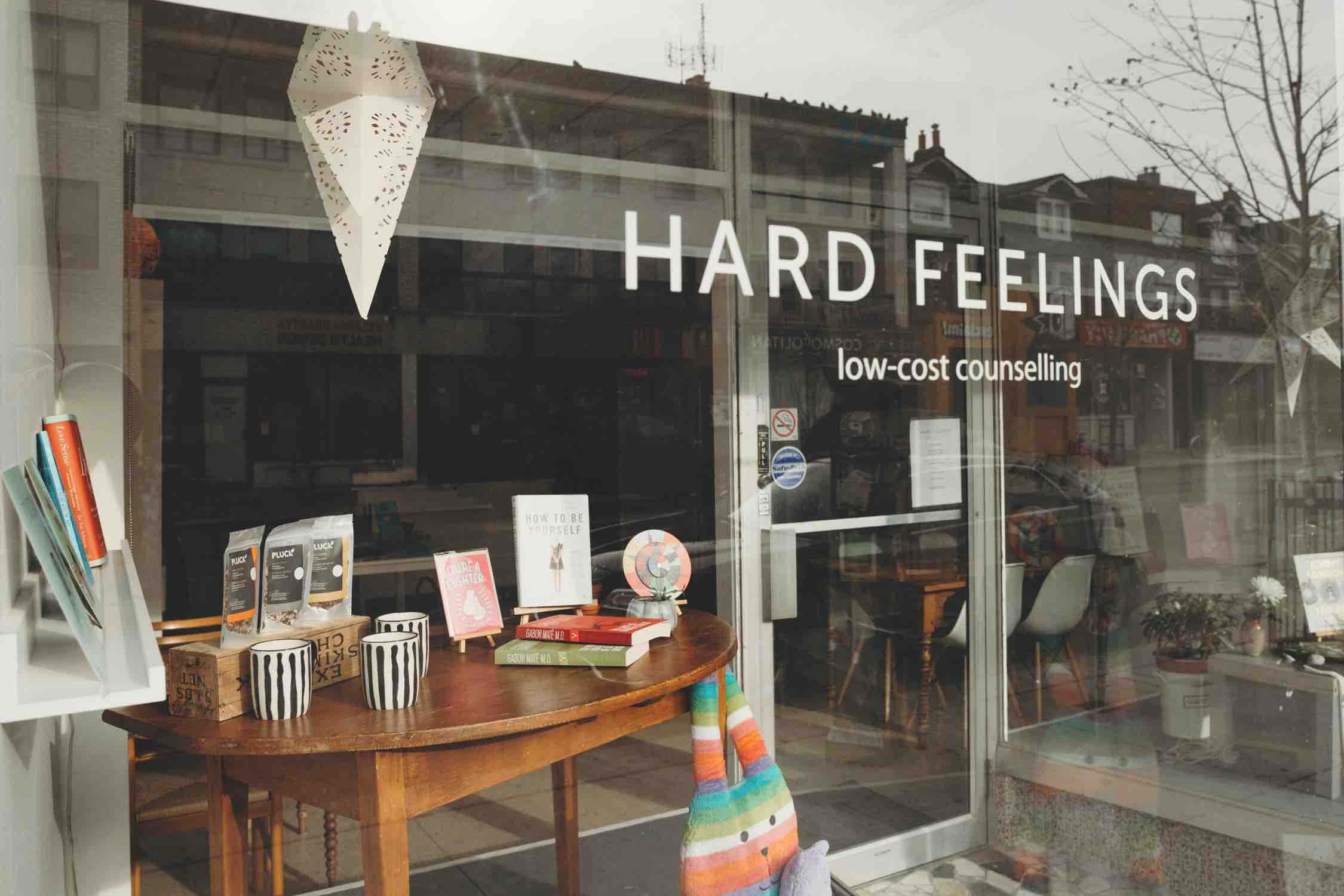On a stretch of Bloor Street in Toronto, where old-style taverns are gradually being replaced by natural wine bars, one business puts mental health services front and centre. Hard Feelings, opened by social worker Kate Scowen in September 2017, isn’t a typical counselling clinic.
There are no frosted windows or vague references to the services being offered. Instead, Scowen has created a storefront that is both explicit and inviting. Big windows reveal a cozy interior, with a small reception area selling books on topics that range from attachment concerns in adulthood to transforming your sex life. “I think that having a space where you can come in and just talk about mental health, a community hub, [was important],” says Scowen.
When she graduated with a social work degree in 2015 after many years in youth and community work, she knew she wanted to offer low-cost counselling. “I had seen a lot of people, both friends and family, struggle with access,” she says. “People would call me all the time and say, ‘Kate, I need a therapist for my kid or my marriage.’ My first question would often be, ‘What [can you afford]?’ And they would say, ‘No benefits.’”
Instead of paying up to $200 an hour for counselling at the market rate, patients at Hard Feelings can receive an hour of care for $50 to $80. And the response has been overwhelming.
Hard Feelings opened with eight counsellors operating six days a week and has rapidly grown to 23 counsellors operating seven days a week. “We are not the solution. There are huge systemic issues,” says Scowen. “But in the interim, we can at least provide some access.”
Reducing stigma and normalizing mental health care is part of the reason Hard Feelings makes things completely transparent. Sure, they permit clients to come through a back door, and have a screen individuals can sit behind while waiting. But Scowen says that those measures are in fact rarely used. “[Clients] sit out here and fill out their intake forms next to people they don’t know.”
Hard Feelings is just one business, and these are small steps, but Scowen hopes her model will both encourage the creation of other affordable options and contribute to a reduction in stigma. “Clients tell us all the time that if we weren’t here, they never would have been able to have counselling,” says Scowen.
This story first appeared in Broadview’s December 2019 issue with the title “A new face of mental health care.”
















This story tells me a lot about the greed in Healthcare today